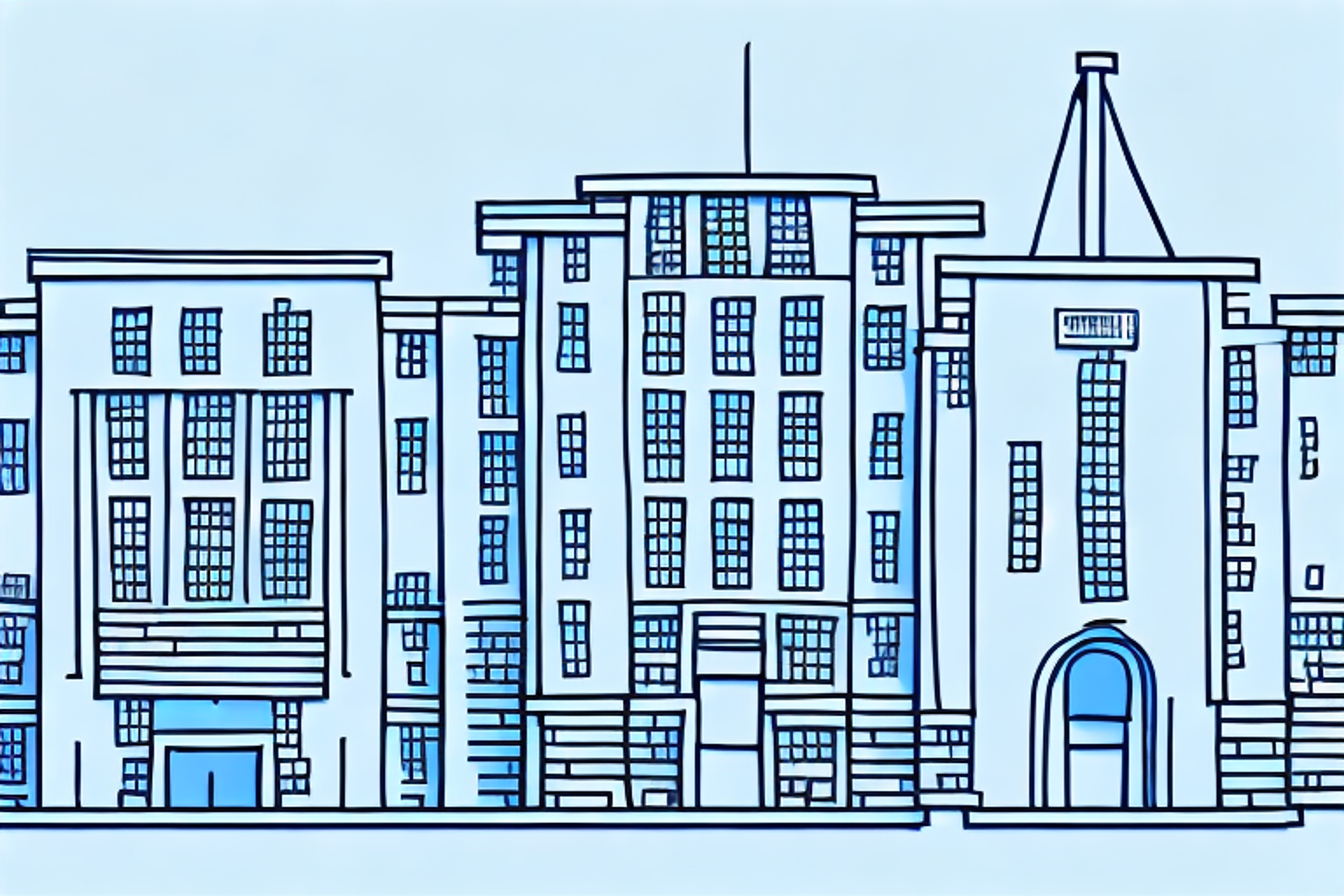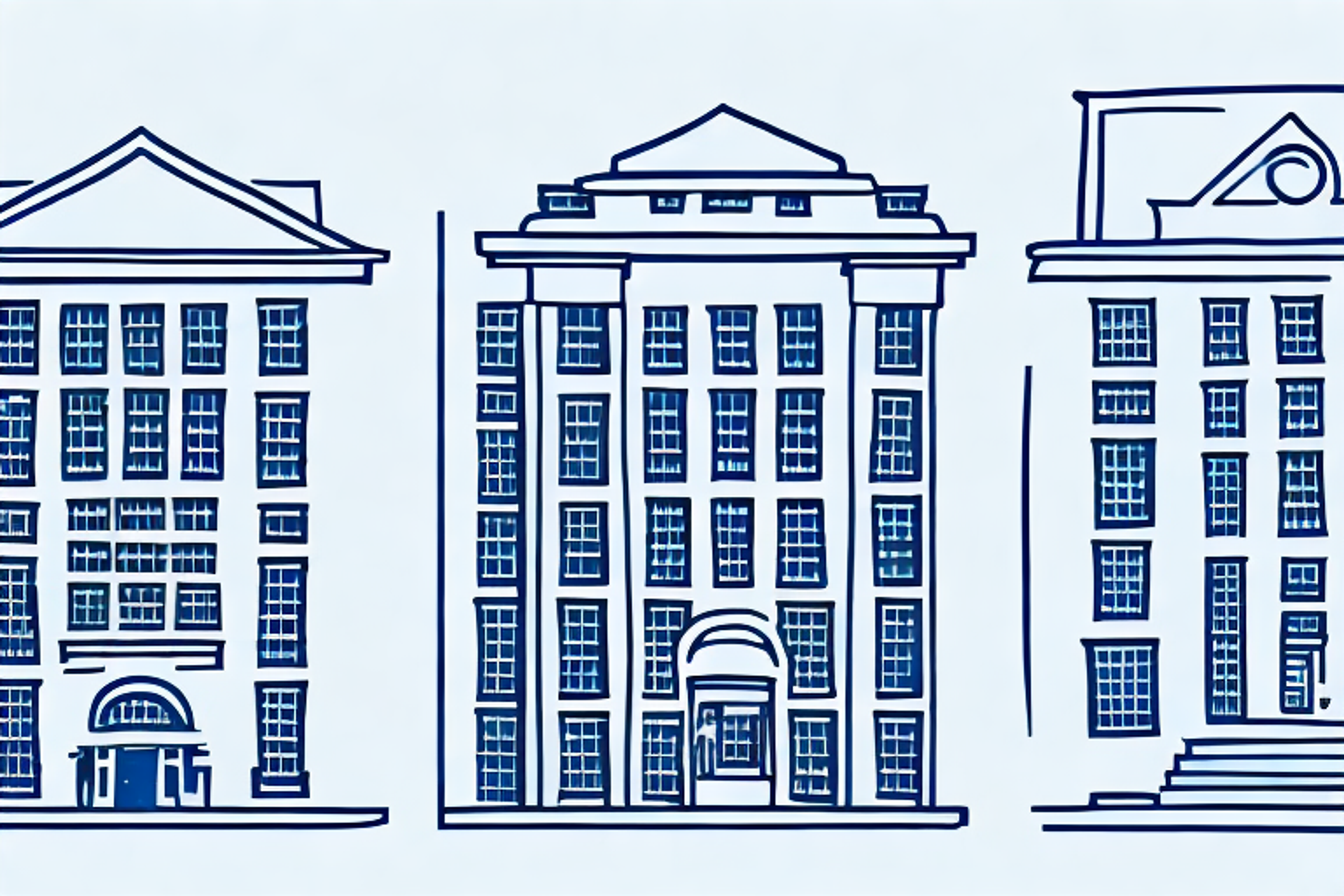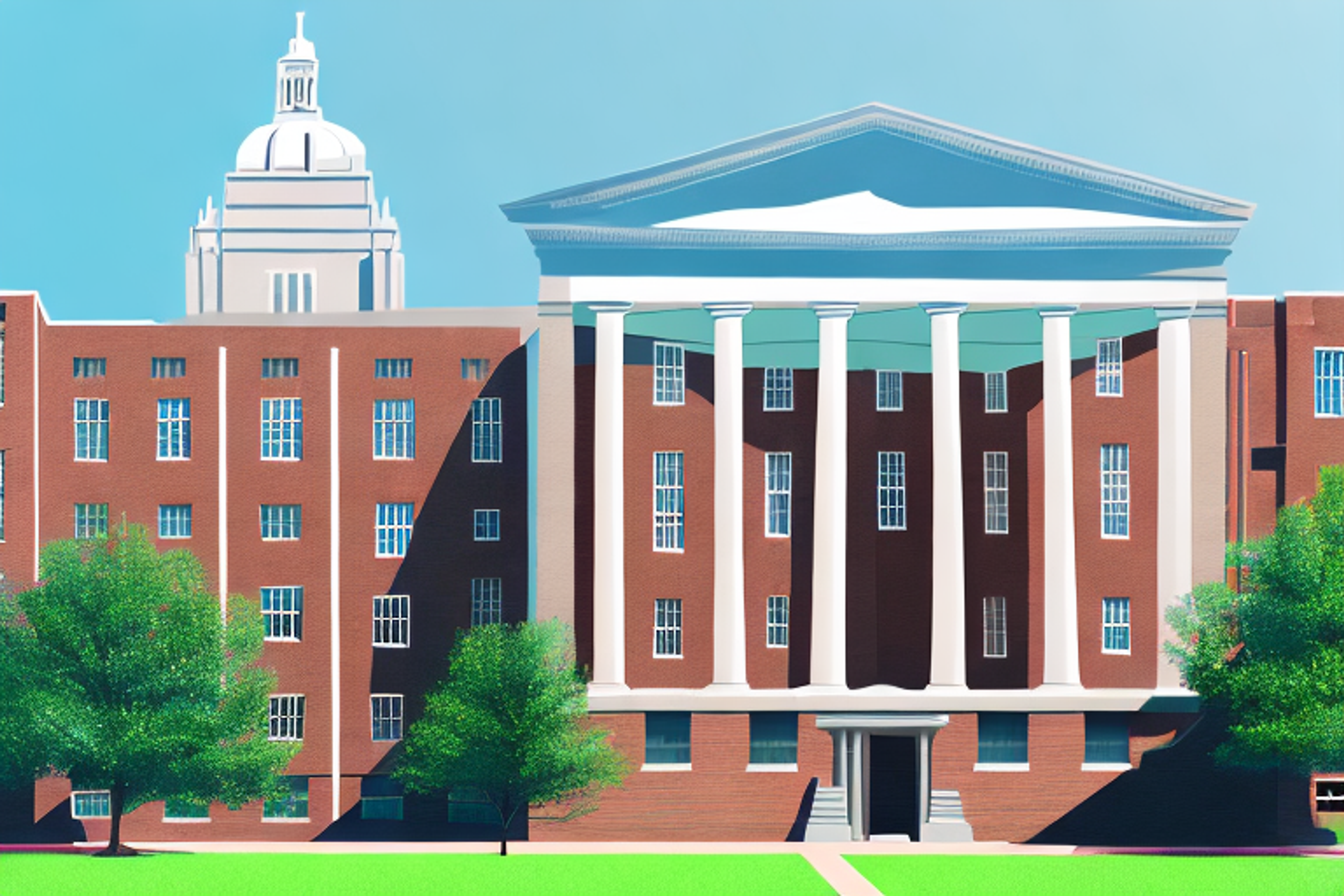Yale Law School Vs. University of Pennsylvania Carey Law School: An In-Depth Comparison
Are you considering attending law school, but can't decide between Yale Law School and University of Pennsylvania Carey Law School? Look no further! Our in-depth comparison breaks down the similarities and differences between these two prestigious institutions, helping you make an informed decision about your future..
Posted March 6, 2025

Table of Contents
If you’re considering attending law school, you may be wondering which institution is the right fit for you. Choosing a law school is a big decision, and it’s important to find a school that matches your needs and expectations. In this article, we will explore the differences between Yale Law School and University of Pennsylvania Carey Law School.
Location and Campus: How Do the Two Law Schools Compare?
One of the primary differences between these two law schools is their location. Yale Law School is located in New Haven, Connecticut, while the University of Pennsylvania Carey Law School is situated in Philadelphia, Pennsylvania. Yale Law School has a beautiful campus with traditional brick buildings and plenty of green space. In contrast, the University of Pennsylvania Carey Law School is located in a bustling urban environment, surrounded by numerous shops, restaurants, and cultural attractions.
Another difference between the two law schools is the size of their campuses. Yale Law School has a relatively small campus, with only a few buildings dedicated to the law school. In contrast, the University of Pennsylvania Carey Law School has a much larger campus, with several buildings dedicated to the law school, as well as other academic departments.
Additionally, the two law schools have different approaches to campus life. Yale Law School has a strong sense of community, with many opportunities for students to get involved in extracurricular activities and social events. The University of Pennsylvania Carey Law School, on the other hand, has a more independent culture, with students encouraged to pursue their own interests and passions outside of the classroom.
History and Prestige: Yale vs. UPenn Law School
Yale Law School is one of the most prestigious law schools in the country, with a long history of excellence in legal education. The school was founded in 1824 and has produced numerous Supreme Court Justices, heads of state, and other prominent legal figures. The University of Pennsylvania Carey Law School also has a long history of excellence, having been established in 1790. While it may not have the same level of prestige as Yale, UPenn Law is still considered to be one of the top law schools in the country.
Both Yale and UPenn Law Schools have unique features that set them apart. Yale Law School is known for its small class sizes and its emphasis on public interest law. UPenn Law School, on the other hand, is known for its interdisciplinary approach to legal education, with opportunities to take courses in other departments such as business and public policy. Both schools offer a rigorous and challenging curriculum, and graduates from both institutions are highly sought after by top law firms and employers.
Curriculum and Areas of Specialization
The curriculum at Yale Law School emphasizes critical thinking and legal theory, with a focus on practical experience in addition to classroom learning. Students at Yale have the opportunity to choose from a wide range of elective courses and seminars, allowing them to specialize in areas such as environmental law, human rights, and international law. At the University of Pennsylvania Carey Law School, the curriculum is more focused on practical legal skills and experiential learning. Students at UPenn Law can choose from a range of specialized programs, including the Wharton Business and Law Certificate program.
Admission Process: Which is More Selective?
Both Yale Law School and the University of Pennsylvania Carey Law School are highly selective institutions, with acceptance rates well below 15%. However, Yale Law School is generally considered to be the more selective of the two schools. Applicants to Yale Law School must have a high GPA and LSAT score, as well as impressive letters of recommendation and a strong personal statement. This rigorous selection process ensures that Yale students are among the very best in the legal profession.
Faculty and Teaching Quality: A Comparative Analysis
Both Yale Law School and the University of Pennsylvania Carey Law School have world-class faculty members, many of whom are renowned legal scholars and practitioners. Yale Law School is particularly well-known for its star-studded faculty, including numerous Supreme Court Justices and legal scholars like Cass Sunstein and Akhil Amar. The University of Pennsylvania Carey Law School also has a strong reputation for its faculty, with professors like Vice Dean Rangita de Silva de Alwis leading the way in areas such as international gender issues and human rights.
Student Life at Yale vs. UPenn Law School
Student life at both Yale Law School and the University of Pennsylvania Carey Law School is vibrant and engaging. At Yale, students enjoy a close-knit community and numerous extracurricular opportunities, including the Yale Law Journal and the Yale Law and Technology Society. The University of Pennsylvania Carey Law School, on the other hand, has a more cosmopolitan atmosphere, with numerous student organizations and events focused on social justice, diversity, and community outreach.
Career Prospects and Alumni Network
Graduates of both Yale Law School and the University of Pennsylvania Carey Law School enjoy excellent career prospects, with opportunities in prestigious law firms, public service, and academia. Yale Law School is especially well-known for its placement in clerkships and academic positions, while UPenn Law graduates often find success in business and government. Both schools have a strong alumni network, with alumni working in a wide range of industries and fields.
Tuition Fees and Financial Aid: A Comprehensive Comparison
As with other top law schools, tuition fees at Yale Law School and the University of Pennsylvania Carey Law School are significant. However, both schools also offer generous financial aid packages and scholarships to help students fund their education. The cost of attendance at Yale Law School and UPenn Law varies depending on factors such as residency status and program choice.
Scholarships, Grants, and Fellowships Available at Yale and UPenn Law School
Both Yale Law School and the University of Pennsylvania Carey Law School offer a range of scholarships, fellowships, and grants to help students mitigate the cost of tuition and living expenses. These awards are often based on merit and financial need, and can cover a significant portion of a student’s expenses. Some of the scholarship opportunities available at both schools include the John M. Olin Fellowships, the Kirkland & Ellis Diversity Fellowship, and the Levy Scholars Program.
Extracurricular Activities and Opportunities for Professional Development
Both Yale Law School and the University of Pennsylvania Carey Law School offer a wealth of extracurricular activities and opportunities for professional development. At Yale Law School, students can participate in moot court competitions, clinical programs, and various student organizations. The University of Pennsylvania Carey Law School offers similar opportunities, including internships, externships, and clinics focused on fields such as healthcare law and human rights.
Research Centers and Institutes Available at Both Schools
Both Yale Law School and the University of Pennsylvania Carey Law School have numerous research centers and institutes focused on legal issues and policy matters. These centers provide students with opportunities to engage in research and scholarship, as well as to participate in conferences, seminars, and workshops. Some of the research centers and institutes at Yale Law School and the University of Pennsylvania Carey Law School include the Yale Center for Environmental Law & Policy and the Penn Program on Regulation.
Diversity, Equity, and Inclusion: A Comparative Study between Yale and UPenn Law School
Diversity, equity, and inclusion are critical issues in the legal profession, and both Yale Law School and the University of Pennsylvania Carey Law School have implemented initiatives to promote these values. Yale Law School has established a Diversity, Equity, and Inclusion Committee to oversee programs and policies related to diversity and inclusion. The University of Pennsylvania Carey Law School has also implemented a series of initiatives to promote diversity and inclusivity, including a Diversity and Inclusion Action Plan and a range of affinity groups and mentoring opportunities for students from underrepresented groups.
Student Support Services Offered by Both Institutions
Both Yale Law School and the University of Pennsylvania Carey Law School provide a variety of student support services to ensure that their students are successful. These services include academic advising and tutoring, career counseling, and mental health resources. At Yale Law School, the Career Development Office provides students with individualized career counseling and support, while the University of Pennsylvania Carey Law School offers a range of career-related resources such as job search databases and networking opportunities.
Internship Opportunities Available for Students at Yale vs UPenn Law School
Internship opportunities are a critical component of legal education, providing students with practical experience and exposure to the legal profession. Both Yale Law School and the University of Pennsylvania Carey Law School offer numerous internship opportunities for their students, including opportunities within law firms, government agencies, and non-profit organizations. At Yale Law School, students can participate in the prestigious Yale Law School Public Interest Fellowship Program, while the University of Pennsylvania Carey Law School offers a range of externship programs and partnerships with local organizations.
Culture, Tradition, & Campus Life between Yale vs UPenn Law School
The culture and tradition of a law school are important considerations when choosing an institution. At Yale Law School, the culture is one of academic rigor and intellectual curiosity, with a strong emphasis on theory and philosophical inquiry. There is also a strong tradition of public service and advocacy. At the University of Pennsylvania Carey Law School, the culture is more focused on practical skills and experiential learning, with a strong emphasis on entrepreneurship and innovation.
Job Placement Statistics for Graduates of both Schools
Graduates from both Yale Law School and the University of Pennsylvania Carey Law School enjoy excellent job prospects, with high levels of employment in prestigious law firms, government agencies, and other legal organizations. According to recent statistics, over 90% of graduates from both schools are employed within ten months of graduation. Yale Law School graduates typically have the highest average starting salaries, while UPenn Law graduates are known for their ability to succeed in business and entrepreneurship.
Comparison of Bar Passage Rates between Yale vs UPenn Law School
Passing the bar exam is a critical step in becoming a practicing attorney. Both Yale Law School and the University of Pennsylvania Carey Law School have impressive bar passage rates, with the majority of graduates passing the exam on their first attempt. However, the bar passage rate at Yale Law School is generally higher, reflecting the school’s emphasis on academic rigor and deep understanding of legal theory.
Overall, Yale Law School and the University of Pennsylvania Carey Law School are both top-tier legal institutions with much to offer prospective students. Consider your individual goals and preferences when choosing between the two, and rest assured that either school will provide you with a high-quality legal education and excellent career prospects.











